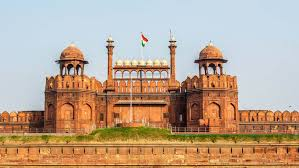Cultural tourism is more than just a travel trend; it’s an invitation to explore the rich tapestry of human history and creativity. As travelers seek deeper connections with their destinations, cultural tourism offers a unique lens through which we can understand our world. From ancient ruins to vibrant festivals, each experience tells a story that transcends time and geography.
Imagine walking through the remnants of an ancient civilization, feeling the echoes of voices long past. Picture immersing yourself in local traditions that have been cherished for generations. Cultural tourism empowers us to embrace diversity while fostering meaningful exchanges with communities around the globe.

Join us as we dive into 10 powerful discoveries—both from ages gone by and those unfolding today—that reveal how cultural tourism transforms our understanding of heritage and humanity alike. Let’s embark on this journey together!
Table of Contents
The power of cultural tourism in understanding our world
Cultural tourism offers a window into the diverse tapestry of human experiences. It allows travelers to step beyond their familiar boundaries and immerse themselves in the stories woven by different cultures.

By exploring local traditions, art forms, and historical narratives, we gain insights into how communities thrive. Each experience enriches our perspective about humanity’s shared values and unique practices.
When we engage with indigenous tribes or visit ancient ruins, we connect with past civilizations. These encounters foster empathy and understanding—qualities often lost in today’s fast-paced world.
Moreover, cultural tourism bridges gaps between societies. It encourages open dialogue among individuals from various backgrounds. As more people seek authentic interactions during their travels, they contribute to a global narrative that celebrates diversity rather than division.
This form of travel can transform not only individual lives but also entire communities through mutual respect and appreciation for differences.
Discovering ancient civilizations through cultural tourism
Cultural tourism opens a gateway to ancient civilizations, allowing us to step back in time. Imagine wandering through the ruins of Machu Picchu or exploring the pyramids of Giza. Each site tells stories that echo through centuries.
Visitors can marvel at intricate artifacts and architectural wonders that showcase human ingenuity. These relics connect us with cultures long gone, igniting curiosity about how they lived, thrived, and expressed their identities.

Walking in these historical footsteps fosters a deeper appreciation for our shared heritage. It’s not just sightseeing; it’s an immersive experience that enriches our understanding.
Engaging with local guides often reveals hidden narratives behind each landmark. Their passion breathes life into history, transforming static sites into dynamic learning experiences ripe with lessons from the past.
Embracing diversity and unique experiences
Cultural tourism thrives on the rich tapestry of human experiences. Each journey offers a chance to embrace diversity in ways that textbooks cannot convey.
When you travel, you’re not just visiting landmarks; you’re stepping into stories woven from different traditions and perspectives. The vibrant colors of local festivals, the aromas wafting from street food stalls, and the songs sung during rituals—all reveal unique cultural identities.
Participating in these experiences fosters appreciation for differences. Engaging with locals allows travelers to see life through their eyes. Whether it’s learning traditional dance steps or joining a community meal, each moment deepens connections.
These encounters shape our understanding of humanity’s vastness while highlighting what binds us together—our shared joys and challenges. Through cultural tourism, every adventure becomes an opportunity to celebrate uniqueness while building bridges across cultures and generations.
Connecting with local communities through cultural tourism
Cultural tourism offers a unique gateway to connect with local communities around the world. Travelers gain insights into everyday life, traditions, and values by immersing themselves in different cultures.
Participating in community-led workshops can be transformative. Imagine learning pottery techniques from a skilled artisan or cooking traditional dishes alongside local chefs. These experiences foster genuine connections that go beyond mere observation.
Moreover, engaging with locals during festivals or events opens up rich narratives about history and heritage. Visitors often find themselves welcomed as part of the family rather than just tourists.
Supporting local businesses also plays a crucial role in this connection. By choosing locally-owned accommodations and eateries, travelers contribute directly to the economy while enjoying authentic flavors and hospitality.
Through these meaningful interactions, cultural tourism enriches both visitors and host communities alike, creating bonds that transcend borders.
The role of technology in enhancing cultural tourism
Technology is reshaping cultural tourism in remarkable ways. Virtual reality (VR) allows travelers to step into ancient worlds or explore museums without leaving their homes. Imagine walking through the ruins of Pompeii, all from your living room.
Smartphones have also transformed how we engage with cultures. Apps provide instant access to historical information and local customs, enriching our understanding during visits. GPS guides help navigate unfamiliar cities while sharing stories tied to specific locations.
Social media platforms enable tourists to share experiences instantly, creating a vibrant tapestry of cultural exchange. Travelers can showcase hidden gems or local traditions that often go unnoticed.
Augmented reality (AR) enhances real-world experiences by overlaying digital content on physical sites, making history come alive right before our eyes. With each technological advancement, cultural tourism becomes more immersive and accessible than ever before, inviting exploration and deeper connections across borders.
Preserving and promoting cultural heritage through tourism
Cultural tourism plays a pivotal role in preserving heritage. When travelers visit historical sites, they contribute to the upkeep of these treasures.
Local communities often rely on tourism revenue to maintain traditions and protect their cultural landmarks. This financial support is crucial for sustaining practices that might otherwise fade away.
Moreover, cultural tourism raises awareness about the significance of various customs and art forms. As visitors engage with local culture, they foster appreciation for diverse ways of life.
This engagement creates an avenue for education and understanding. Tourists learn from artists, artisans, and historians who share their knowledge passionately.
Promoting cultural heritage through tourism not only enhances economic stability but also nurtures pride within communities. As traditions are celebrated globally, they gain recognition while remaining rooted in authenticity.
Sustainable practices in cultural tourism
Sustainable practices in cultural tourism are essential for preserving both heritage and the environment. Responsible travel encourages visitors to respect local traditions while minimizing their impact.
Travelers can support sustainability by choosing eco-friendly accommodations. These establishments often prioritize energy conservation and waste reduction, making a positive difference in their communities.
Participating in local workshops also fosters sustainable tourism. By engaging with artisans and learning about traditional crafts, travelers contribute to the preservation of cultural practices that might otherwise fade away.
Moreover, involving locals in decision-making processes ensures that tourism benefits everyone. This approach helps maintain authenticity while promoting economic growth within communities.
Raising awareness about environmental issues through cultural experiences creates a ripple effect. When tourists understand the significance of protecting natural resources alongside cultural sites, they become advocates for change.
Trends and growth of the cultural tourism industry
Cultural tourism is experiencing rapid growth. Travelers are increasingly seeking authentic experiences that connect them to local traditions and history.
This trend reflects a shift in consumer preferences. Many now prioritize meaningful travel over conventional sightseeing. They want to immerse themselves in diverse cultures, explore local art scenes, and participate in traditional festivals.
Digital platforms play a crucial role in this evolution. Social media allows travelers to discover hidden gems worldwide, fostering interest in lesser-known destinations rich with culture.
Moreover, the pandemic has amplified the desire for unique experiences. Travelers are eager to support local economies while exploring cultural heritage sites safely.
As awareness of sustainability grows, more tourists seek eco-friendly options that respect cultural integrity. This creates opportunities for communities to showcase their heritage responsibly while ensuring its preservation for future generations.
Conclusion: Embrace the transformative power of cultural tourism
Cultural tourism offers a unique lens through which we can explore the richness of our world. It opens doors to experiences that transcend mere sightseeing, inviting travelers to engage with history and heritage in meaningful ways.
The journey through ancient civilizations reveals stories etched in stone and whispers carried by the wind. Each destination holds secrets waiting to be uncovered, connecting us with those who walked before us. These powerful discoveries transport us back in time, enriching our understanding of human civilization.
Embracing diversity becomes effortless when we immerse ourselves in local traditions and customs. Cultural tourism encourages curiosity about different lifestyles, fostering respect for various cultures and beliefs. This engagement allows travelers to create lasting memories while gaining deeper insights into their own identities.
Connecting with local communities transforms travel from a passive activity into an active exchange of ideas and perspectives. By participating in cultural practices—be it through food, art, or festivals—we build bridges between people from diverse backgrounds.
Technology plays a pivotal role as well; it enhances our cultural experiences through virtual tours and interactive storytelling apps that bring history alive at our fingertips. With each technological advancement comes new opportunities for exploration without compromising authenticity.
Preserving cultural heritage is another crucial aspect where tourism makes significant contributions. As awareness grows around the importance of conserving traditions, many destinations are taking steps toward responsible tourism practices that benefit both visitors and locals alike.
Sustainable approaches are more vital now than ever as the demand for authentic experiences rises among travelers seeking connection rather than consumption alone. The industry adapts accordingly by promoting eco-friendly initiatives that encourage mindful interactions with environments rich in culture.
As trends evolve within this vibrant sector—from community-based travels to immersive workshops—the growth trajectory remains promising for all involved parties: tourists keen on discovering what lies beyond tourist traps while communities thrive under shared narratives crafted together over time.
Embrace these transformative journeys offered by cultural tourism as they enrich not only your life but also contribute positively towards global understanding and appreciation across generations.
Click here for related details.
Stay tuned on Travelyas for insight details.

